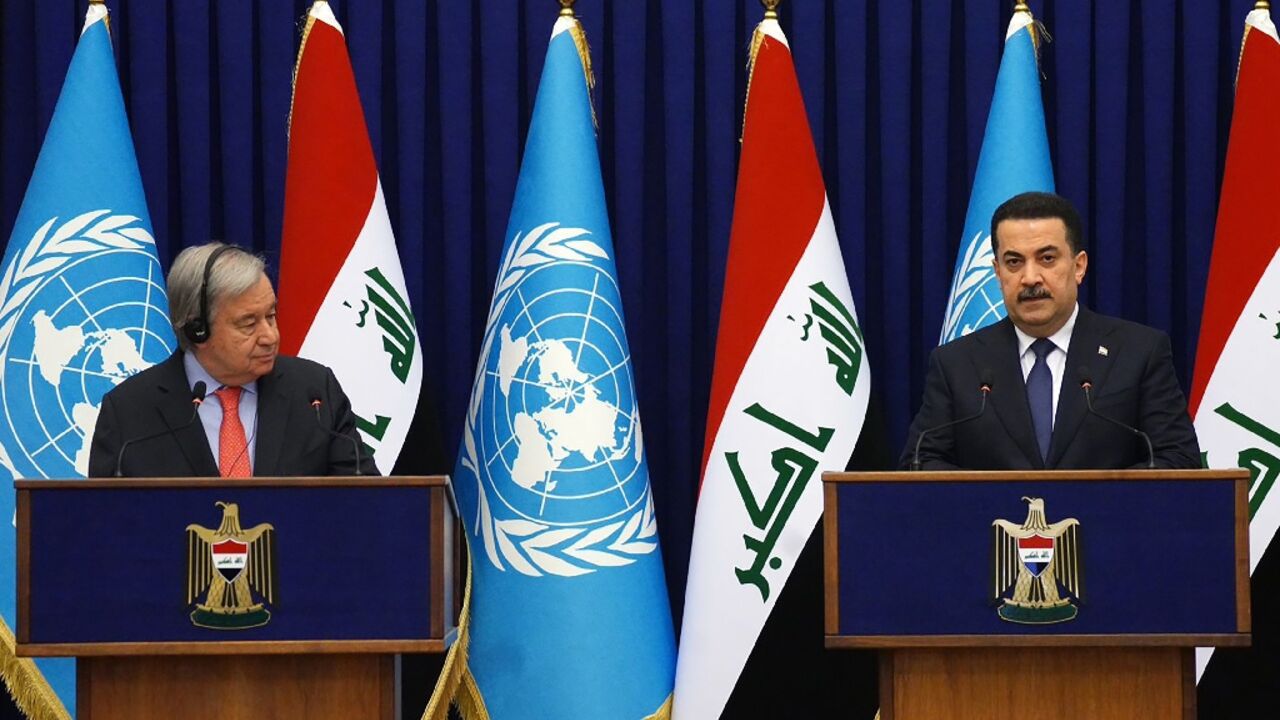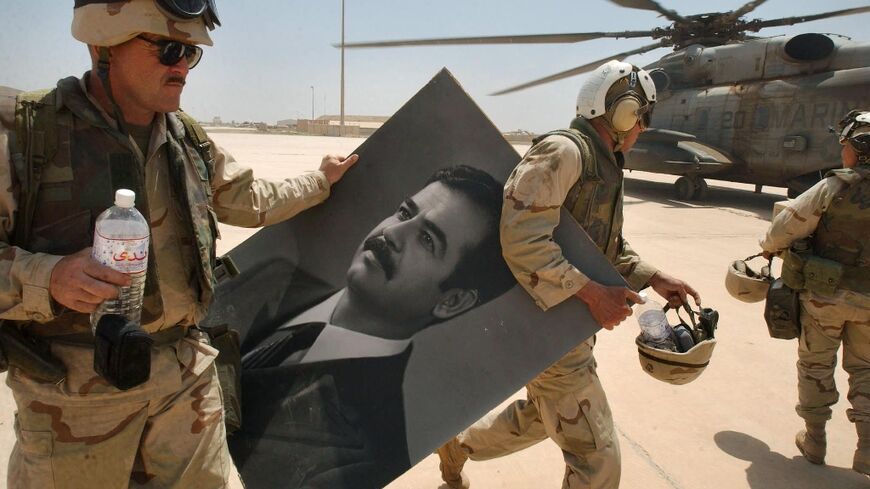UN chief in Iraq for 'solidarity' visit

UN Secretary-General Antonio Guterres urged Iraq to "break cycles of instability and fragility" after talks with senior officials in Baghdad on Wednesday, following a drawn-out political crisis in the war-torn country.
The UN chief's visit comes as Iraq, blighted by corruption and broken infrastructure, prepares to mark the 20th anniversary of the US-led invasion that toppled longtime dictator Saddam Hussein.
Guterres said he wanted to demonstrate "solidarity" with Iraq "in the consolidation of its democratic institutions and advancing peace".
He said he also wanted to express his "confidence that Iraqis will be able to overcome the difficulties and challenges they still face through an open and inclusive dialogue".
"I am here in Baghdad with a measure of hope: hope that Iraq can break cycles of instability and fragility; hope that it can set a sustainable course towards greater prosperity, freedom, and peace," said Guterres during a joint news conference with Iraqi Prime Minister Mohammed Shia al-Sudani.
Guterres arrived late Tuesday in Iraq, which has been ravaged by decades of war, conflict and corruption that have devastated infrastructure and impoverished its people.
Despite its immense oil and gas reserves, about one-third of Iraq's 42 million population now lives in poverty, while some 35 percent of young people are unemployed, according to the UN.
The country also ranks near the bottom of Transparency International's corruption perceptions index, at 157 out of 180 countries.
It suffers from water and power shortages, as well as drought and desertification, with the UN saying Iraq is one of the five countries most exposed to impacts of climate change.
- Corruption and reforms -
Guterres, who last visited Iraq in 2017, also met Wednesday with Foreign Minister Fuad Hussein and is due to hold talks as well with President Abdel Latif Rashid and parliament speaker Mohammed al-Halbusi, the foreign ministry said.
The three leaders are respectively Iraq's top Shiite, Kurdish and Sunni Arab officials under the sectarian power-sharing system established after the US-led invasion toppled Saddam's Sunni Arab-dominated regime.
On Thursday, Guterres is due to visit a camp for displaced people in the north of the country, before heading to Kurdistan regional capital Arbil for talks with Kurdish officials.
At the news conference, Guterres discussed the numerous challenges facing Iraq which he said "did not arise overnight" but were products of "decades of oppression, war, terrorism, sectarianism and foreign interference".
He also praised the prime minister who has pledged to combat graft, saying corruption was among "the most pressing challenges facing the country".
"There is a real window of opportunity to achieve progress," Guterres said, calling on the government, approved a year ago following a year of political wrangling, to push with reforms.
He also lauded Iraq's role to mediate between longtime regional rivals Iran and Saudi Arabia.
"It is important to establish a meaningful dialogue including all the eight countries that surround this Gulf... It is essential to create mechanism of dialogue," he said later in the day.
Guterres also called for "trust" in the region and "non-interference" by countries in the affairs of others.
Sudani, meanwhile, said his government was determined to create jobs for unemployed youths and battle poverty in Iraq where four out of 10 young people are unemployed.
Iraq's parliament approved Sudani's government in October, ending more than a year of political gridlock and deadly violence since the country last went to the polls.
Guterres also recalled the "horrific terrorist attack" of August 2003 against Baghdad's Canal Hotel that killed 22 people, including the UN's special representative Sergio Vieira de Mello, calling it "one of the darkest days in the history of the United Nations".
After Iraq, the UN chief will travel on to Qatar, where he will attend the summit of the Least Developed Countries.





